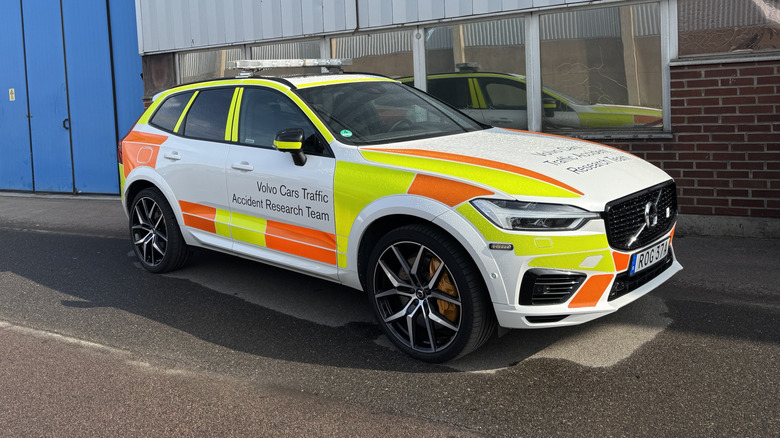Volvo issued a recall for 14,014 of its fully electric and plug-in-hybrid vehicles on Monday because a very limited set of circumstances may cause them to totally lose the ability to slow or stop. The issue is attributed to a software problem within the vehicles’ braking control module, which means the potentially deadly malfunction is easily remedied by an over-the-air software update for compatible models.
With ‘B’ mode active on plug-in hybrids or the one-pedal mode on electric vehicles, braking functionality could potentially be affected after at least a minute and a half of coasting downhill without applying the brake pedal. The list of cars affected by the recall includes some 2023-2025 S60, 2024-2025 V60, 2025 S90, 2022-2026 XC60, 2020-2026 XC90, 2023-2024 XC40 plug-in hybrids, as well as the 2023 C40, 2024-2026 EX40 and 2025 EC40 fully electric vehicles. If you own any of these models or wish to check for open recalls on your vehicle, visit the NHTSA website.
Volvo said, “The software remedy is available now via retailer workshops and has been rolled out via over-the-air update. We are asking customers who have not yet had the corrective software installed in their car to avoid selecting ‘B’ mode or One Pedal Drive while driving.”
Luckily there’s only been one accident due to the problem, but no injuries
Volvo has received a “small number” of complaints from customers, and there has thankfully only been one accident related to the malfunction, with no injuries being reported. As our friends at InsideEVs reported, “The problematic software version that caused this recall, 3.5.14, was released in April but could only be installed at dealerships, and not as an over-the-air update. Its release notes mention that ‘The foot brake should feel less stiff right after starting the car,’ indicating that some tweaks to the Brake Control Module were made. Other improvements were also made to the lane keeping aid, road sign information system and tire pressure monitoring system.”
The latest software update for Volvos with an Android Automotive OS (AAOS version 3.6.4) was released on June 16, so many affected models may already have the new software uploaded if they’re connected to wifi. Owners can take their vehicles into a Volvo dealer for the software update as well. Though it’s rare to see such a potentially dangerous malfunction coming from safety-conscious Volvo, but the brand did recall over 2.1 million cars for potentially faulty seatbelts in 2020, and most recently it recalled nearly 7,500 of its plug-in hybrid vehicles in March due to a potential fire risk when owners were charging their PHEVs up. To check for open recalls on your vehicle visit the NHTSA website.



